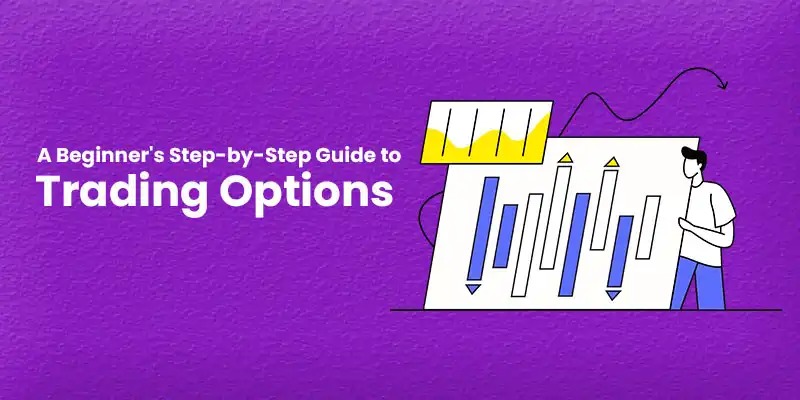One fresh technique to invest in the stock market is trading options. It allows you the opportunity to make sensible judgments and diversify your holdings. If you are new to options, this blog will teach you the fundamentals and begin your road toward savvy investing. So, read on!
Contents
- Understand the Basics of Options
- Learn Key Terminology
- Choose the Right Brokerage
- Open and Fund Your Trading Account
- Build a Solid Knowledge Base
- Start with Simple Strategies
- Develop a Trading Plan
- Monitor Market Trends
- Practice Patience and Discipline
- Conclusion FAQs
Understand the Basics of Options
Options are agreements allowing a buyer to decide whether to purchase a basic object for a designated price within a given period of time. The purchase depends on the buyer, and he isn’t obliged to do this.
Different Kinds of Options:
- Call Options: The right to purchase the underlying object is provided by call options.
- Put Options: Grant the right to sell the object they are based upon.
Depending on your financial objectives, options can be used for risk management, gambling, or income creation.
Learn Key Terminology
Learn the following essential terms for trading options:
- The strike price is the total amount you might utilize for sales or purchasing the core stock.
- The premium in an option contract is their purchase cost.
- The deadline for the option deal is the “Expiration Date.”
- In-the-Money (ITM) demonstrates when an option is valued on what it is worth.
- Out-of-the-Money (OTM) shows when an option is not valuable on its own.
Having this knowledge will assist any candidate in making good choices.
Choose the Right Brokerage
When trading options, choosing a brokerage site you can trust is essential. Look for a platform that offers you:
- Analysis tools and charts that are easy to use.
- Resources for learning about educational choices.
- Fees and commissions that are competitive.
- A mobile app or PC screen that is easy to use.
You should look at multiple brokers to find the best one for your trading style and tastes.
Open and Fund Your Trading Account
Once you’ve picked a bank, you must open an account and put money into it. Most brokers will want you to:
- Fill out an application with information about yourself and your finances.
- Pass an evaluation of your potential for trading options.
- It’s time to start trading. Put money into your account.
Make sure you have the minimum amount of money in your account if there is one.
Build a Solid Knowledge Base
Learning about options trading techniques and how the market works is essential. Take a look at tools like:
- There are books and e-books on trading options.
- There are classes and lessons online.
- Webinars and real-time teaching.
- Accounts for practice trading without using real money.
Knowing a lot about trading is essential for avoiding mistakes and building your trust as a trader.
Start with Simple Strategies
When starting out, you should focus on simple methods before moving on to more complex ones. Some methods that are good for beginners are:
- Covered Call: You sell call options on stock you own to earn money.
- Cash-Secured Put: Selling a put option commits you to purchase the stock with the proceeds from the option.
- Long Call or Long Put: Buying options to guess how the market will go.
These tactics will help you get real-world knowledge while keeping risks under control.
Develop a Trading Plan
You must develop a well-considered trading plan if you want long-term success. This is what your plan should include:
- Goals: Write down your financial goals and how long you want to reach them.
- Risk Management: Decide how much you’re ready to lose on each deal.
- Entry and Exit Points: Determine the rules for making and ending deals.
- Performance Tracking: Look over your deals regularly to find ways to make them better.
Discipline and regularity are essential parts of a trading plan that works.
Conclusion
Trading options may be a successful approach to increasing your investment account if you are prepared and know what you’re doing. To position yourself for long-term success, first understand the foundations. Keep up with the market, hone your abilities, and follow your trading plan. Following your strategies and being patient can help you find great value in options trading along your financial path.
Disclaimer: This article is just for educational reasons; it is not financial advice. See a financial advisor to find out if your objectives and risk tolerance call for options trading.
FAQs
Brokerage affects the minimum trading amount; some systems let you start with just $100. You must also have enough money to manage risks well.
While not required, past stock trading expertise is useful. Starters can learn about their choices by using study materials.
When people buy options, their most significant loss is usually just the premium they paid. However, there are bigger risks when selling some types of options. Learn about the risks before you start trading.

